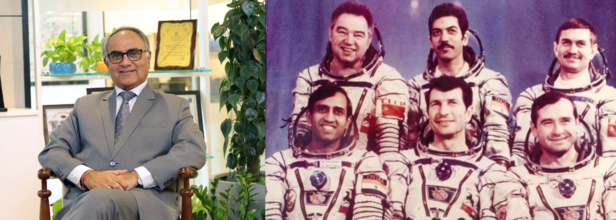
Credit: Canva
Workplace Policies On Menopause Gain Traction
Menopause policies in workplaces are increasing, reflecting the growing number of women in the workforce experiencing this life stage. Women approaching or reaching the end of their reproductive years now make up about 20% of the U.S. labor force. Many of these workers face significant challenges, including hot flashes, difficulty concentrating, and other disruptive symptoms caused by hormonal changes.
However, the economic impact of menopause has remained largely overlooked—until now.
A recent study by Petra Persson, a faculty fellow at the Stanford Institute for Economic Policy Research (SIEPR), sheds light on the financial burden associated with menopause. The findings indicate a considerable decline in earnings among menopausal women. Those seeking medical help for menopause-related symptoms earn 10% less four years later, often due to reduced work hours or leaving the workforce entirely.
'Menopause Penalty'
The economic effects are particularly pronounced among women without college degrees and those in manual or routine-intensive jobs. Additionally, employees in smaller private-sector firms face greater financial strain due to the "menopause penalty."“The economic losses for working women during menopause are substantial,” says Persson, also an assistant professor of economics at Stanford. While much research has focused on the "motherhood penalty," the financial consequences of menopause have been largely ignored until now.
Persson’s study underscores the need for supportive workplace policies. About 85% of women experience menopausal symptoms, which typically begin between the ages of 45 and 55 and may persist for over a decade. With 60% of U.S. women aged 55 to 64 still in the workforce, the study highlights the importance of employer and government intervention.
“Just as we have parental leave and accommodations for health-related productivity dips, it makes sense to implement policies that assist women navigating menopause,” Persson explains.
Her research suggests that workplace policies supporting women with severe menopausal symptoms could yield significant economic benefits. Providing accurate information about menopause and expanding access to menopause-related health care, such as hormone replacement therapy (HRT), could help mitigate financial losses. Persson’s study indicates that increased awareness and medical support can help women—especially those without college degrees—maintain stable employment and earnings.
The study also reveals a link between menopause and early retirement. An increase in disability insurance claims suggests that many women exit the workforce permanently due to menopause-related health issues.
Due to the lack of comprehensive U.S. data on menopause and its economic effects, Persson and her collaborators—Gabriella Conti (University College London), Rita Ginja (University of Bergen), and Barton Willage (University of Delaware)—analyzed publicly available data from Sweden and Norway. While the findings may not directly translate to the U.S., they align with existing research. A Mayo Clinic study, for example, estimates that menopause symptoms result in $1.8 billion in lost work time annually in the U.S.
Public awareness of menopause is growing, partly due to high-profile discussions by celebrities like Oprah Winfrey and Naomi Watts. The issue has also gained political attention; the British Parliament recently held hearings on menopause in the workplace, and a bipartisan U.S. bill introduced in 2023 calls for increased federal funding for menopause-related research.
Some Fortune 500 companies have begun implementing flexible work arrangements and mental health services for menopausal employees, but such initiatives remain rare. Persson emphasizes that governments and employers must take further action to raise awareness and establish workplace protections.
"Women facing menopause-related challenges need support just like any other employees managing health conditions," Persson says. "Our study suggests that expanding access to menopause-related care and workplace accommodations could offer significant economic benefits"

Credits: Canva
FDA Approves Cabozantinib For Neuroendocrine Tumors
The United States Food and Drug Administration has recently approved cabozantinib (Cabometyx) for patients with previously treated advanced neuroendocrine tumors. This is an oral tyrosine kinase inhibitor, which is offering a new standard for care of this patient group. This has been announced by the Dana-Farber Cancer Institute.
How Was The Drug Approved?
The approval came on the bases of the results from the phase 3 CABINET study. The study compared cabozantinib to a placebo in patients with advanced pancreatic neuroendocrine tumors.
As per the National Cancer Institute, neuroendocrine tumor grows from neuroendocrine cells. These cells receive and send messages through hormones to help the body function. These cells are found in organs throughout the body. The neuroendocrine tumor was called carcinoid tumor
These tumors grow very slowly and are mostly found in appendix, also known as appendiceal neuroendocrine tumors. When found in lungs, they are also called bronchial tumors. These areas are more common in children and young adults. Whereas for adults, it is mostly found in the digestive tract, called the GI neuroendocrine tumor. What makes it concerning is that it can also spread to other parts of the body but does so more in adults than in children.
They are rare in children and more common in adults, affecting up to 4 in 100,000 adults.
The drug which FDA has approved based on the phase 3 CABINER study's results have been published last September in the New England Journal of Medicine. Patients who were treated with cabozantinib survived significantly longer with no worsening of their disease compared with patients who received placebo. This also improved the efficacy as was observed in the interim analysis. The trial was in fact terminated early and unblinded in August 2023.
Are There Any Side Effects From The FDA Approved Drugs?
The reported side effects of cabozantinib were similar to those found in other studies of the drug. They include:
- Hypertension
- Fatigue
- Diarrhea
"Patients with neuroendocrine tumors often face a difficult journey," lead author of the CABINET study, Jennifer Chan, M.D., M.P.H., of the Dana-Farber Cancer Institute, said in a statement. "Despite advances in recent years, there has remained a critical need for new and effective therapies for patients whose cancer has grown or spread. Cabozantinib significantly improved outcomes in this patient population and this FDA approval provides new hope."
How Is Neuroendocrine tumor diagnosed?
While some people have symptoms, others may do not have any symptoms. These symptoms depends on where in your body the tumor has grown.
Patients who have appendiceal neuroendocrine tumors may have symptoms of appendicitis, such as pain in abdomen. They could also be later diagnosed with carcinoid tumor in case the doctor removes the appendix and finds a tumor. Patients with carcinoid tumor in other parts of the digestive tract may have symptoms such as:
- Pain in the abdomen
- Nausea or vomiting
- Diarrhea
Other ways to detect is by lab tests, imaging, and biopsy.

'I Felt Like I Was Going to Die'-Oprah Winfrey’s Shares Her Menopause Struggle
For most women, this reality is what menopause feels like, a time when hormonal changes impact everything from sleep routines to mood stability. Oprah Winfrey recently shared her own personal battle with menopause, exposing how it left her unable to read her favorite books or even host her famous book club. In a candid conversation, Winfrey explained how the overwhelming symptoms—especially heart palpitations and an inability to concentrate—left her feeling like she was “literally going to die every single night.”
It’s a topic that’s often kept behind closed doors, but menopause affects millions of women globally. According to the National Institute on Aging, menopause is reached when a woman has had no period for 12 months in a row, normally between the ages of 45-55, and may create a variety of symptoms ranging from hot flashes to emotional upset. Oprah's announcement of her own menopause experience highlights the not-so-well-known symptoms and raises awareness of the need for greater information and support. Let's take Oprah's journey and see how we can learn more about and cope with this natural but too-often-misunderstood phase of life.
But media mogul Oprah Winfrey is breaking that. In a recent interview, Winfrey, 71, spoke candidly about her own menopause experience, describing an ordeal so overwhelming that she thought she was "going to die every single night."
Winfrey's confession is not simply another celebrity revelation—it's a wake-up call for millions of women across the globe who suffer from menopausal symptoms in ignorance, without proper medical attention, or public support.
Menopause, that phase of life when a woman's menstrual cycle permanently ceases because of the decrease in estrogen and progesterone levels, is usually coupled with symptoms of hot flashes and night sweats. But in Winfrey's case, it was different—though no less unsettling.
One of the most surprising and disturbing symptoms that she experienced was one of inattention. An avid reader since childhood and the face of Oprah's Book Club, she discovered that she couldn't read.
The worst for me, this is when I realized I really was in trouble, is when I couldn't focus reading," Winfrey explained to ABC News' Kayna Whitworth. "I adore reading so much, but I abandoned the book club because I could not focus when I was reading. I could no longer complete a book.
It wasn't until she began hormone therapy with estrogen that she regained her concentration. "I brought back [the book club] when I began taking estrogen because I could concentrate again, but I actually never mentioned that before," she confessed. "It makes me want to cry."
Lesser-Known Symptoms of Menopause
Although night sweats and hot flashes are universally acknowledged as symptoms of menopause, other physical and psychological consequences tend to go unmentioned. Winfrey felt palpitations of the heart—a symptom she never correlated with menopause.
"I did not have night sweats, and I did not have hot flashes, but I had never heard that palpitations [were] a symptom of menopause," she explained. "When I was going through it, there was nothing. There was nobody."
This absence of knowledge concerning the entire range of menopausal symptoms is a crucial concern. Menopause influences each woman uniquely, with some suffering from anxiety, depression, insomnia, mental fogginess, or even arthritis, says the National Institute of Health (NIH). And though it touches everyone equally, menopause has been among the least talked about and most under-studied topics in women's health.
Committed to making sure that other women do not have to endure in silence, Winfrey is leveraging her platform to ignite a long-overdue discussion. Her new Hulu special, An Oprah Winfrey Special: The Menopause Revolution, seeks to inform and empower women on menopause, offering expert advice and real-life stories to guide them through this stage of life with confidence.
She also tweeted to highlight how crucial it was to discuss menopause. "When I underwent menopause, I couldn't sleep for two years. I couldn't concentrate. I couldn't read my favorite books. I had heart palpitations. Nobody informed me about this. Now we're discussing it, so no woman suffers," she posted on Facebook.
Winfrey's advocacy is part of a larger effort to make menopause conversations mainstream and better healthcare responses. Women should have access to proper information and healthcare providers who seriously consider their symptoms.
What Women Need to Know About Seeking the Right Medical Support?
Winfrey's experience teaches an important lesson: women need not be afraid to get a medical consult when they are experiencing symptoms of menopause. "Because it hits every cell in your body, the first time you have any of the symptoms, that's when you need to go go find a doctor who will hear you, listen to you, and take action for you," she encouraged.
Far too frequently, women's menopausal symptoms are downplayed, and they must cope with the changes by themselves. Professionals advise going to see a gynecologist or a menopause specialist as early as perimenopause—the pre-menopause phase—so that possibilities such as hormone therapy, lifestyle modifications, and other forms of treatment can be discussed.
Oprah Winfrey's honest narrative about her battle with menopause is a call to change the way society understands and responds to this natural phenomenon. It's about tearing down the taboo and myth surrounding menopause so that future generations of women will be better equipped and empowered.
With powerful voices such as Winfrey at the forefront, menopause is no longer a silent battle—it's a dialogue that must be heard.

(L to R) Lt Gen Dr Vimal Arora; Rakesh Sharma with Soyuz T-11 crew (source: Russian House, New Delhi)
Exclusive: Astronaut Rakesh Sharma Had To Get His Wisdom Tooth Extracted Before His Trip To Space
In an exclusive interview with Health and Me, Lt Gen Dr. Vimal Arora who is the Chief Clinical Officer (CCO) at Clove Dental talked about his experiences of treating the former Presidents of India and the time when he served as one of the doctors at the Air Force Institute of Dental Sciences in Bengaluru.
In 1982, Rakesh Sharma was selected as a cosmonaut for a joint Soviet-Indian spaceflight. With him, ex IAF Pilot Ravish Malhotra was also selected who was trained to fly on that mission as a backup for Rakesh Sharma. For this mission, Sharma was rigorously trained at Moscow's Yuri Gagarin Cosmonaut Training Center for two years. He also underwent a test for claustrophobia in Bengaluru's Indian Air Force facility with being locked in a room for 72 hours for the test.
It was there only when Dr Arora had come across the case. "I was young in Bengaluru, and we had these India astronauts who would go along with Russian astronauts and the medical were also going on. At that time, I distinctly remember Rakesh Sharma and Ravish Malhotra and only one of them were supposed to go," he shares.
It was there when Dr Arora got caught in a debate with regards to their medical checkup. It was on whether the astronauts should have their wisdom tooth removed.
"Their dental checkups were done and we were told that their wisdom teeth had to be taken out. We were fighting with them (Russian doctors)," Dr Arora shares.
"I said, 'they are perfectly fine, why is there a need to extract their tooth? It is not going to cause any trouble.' But it was made very clear from the Russians and their team of doctors and dentists that wisdom teeth must be removed."
The reason for this was, as Dr Arora explained, the astronauts, the mission and everyone else who have invested in the spaceflight could not let a wisdom tooth ache become a issue to cancel the trip. Even if there is a chance that this may cause tooth pain, the trip had to be called back and the team could not afford that.
"This is when I learned the wisdom tooth has to go away. It was a different lesson for me at that time," he shares.
After that, Dr Arora says that many more things had enlightened him, including the first intra oral full mouth x-ray machines which had also been imported there.
He says that dentistry has changed unimaginably. The amount of technology that dentists used is not used in any other health sector.
His experiences do not just end there. He has also treated the former Presidents of India including Dr APJ Abdul Kalam and Dr Pranab Mukherjee.
"What makes them stand apart was the simplicity with which they treated the doctor. I remember that I was more nervous when I had to talk to Dr Kalam. But he always had this child-like simplicity and child-like curiosity. He always left with some kind of messages and it gave me a different lesson in my life."
© 2024 Bennett, Coleman & Company Limited

